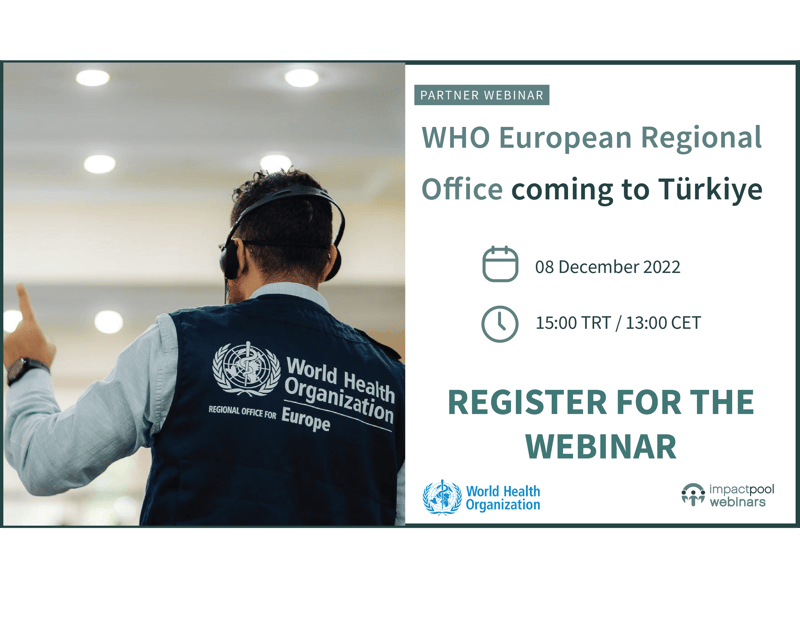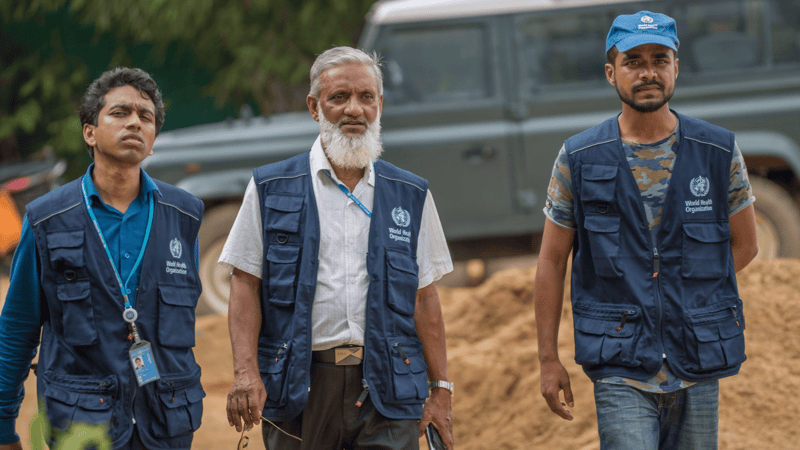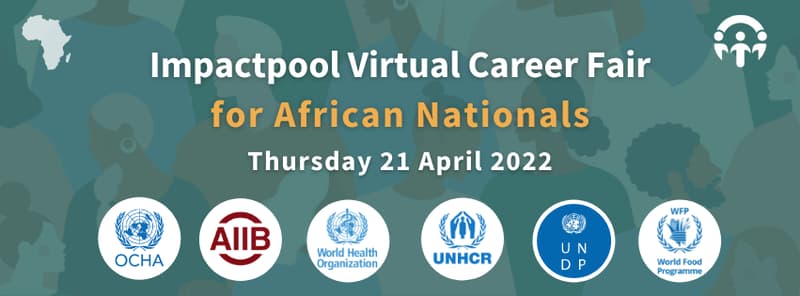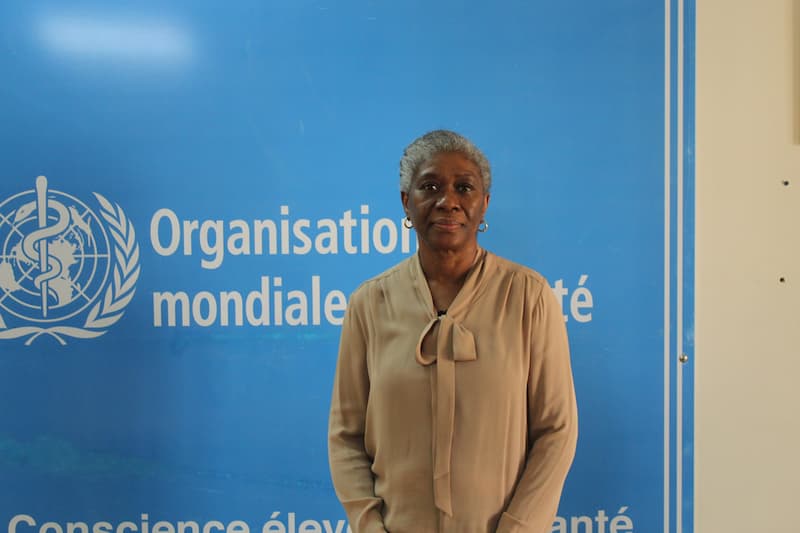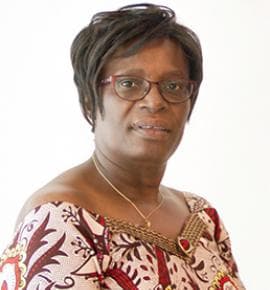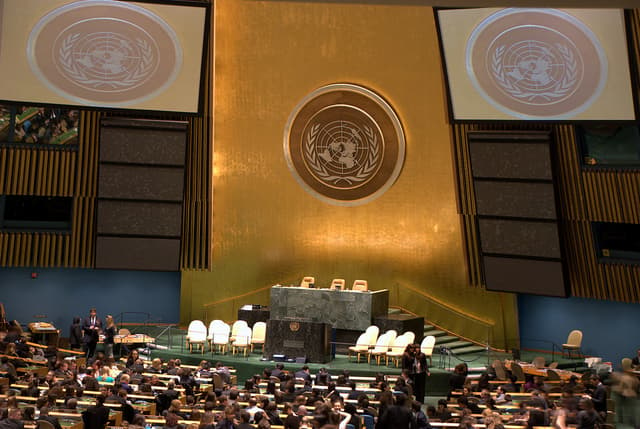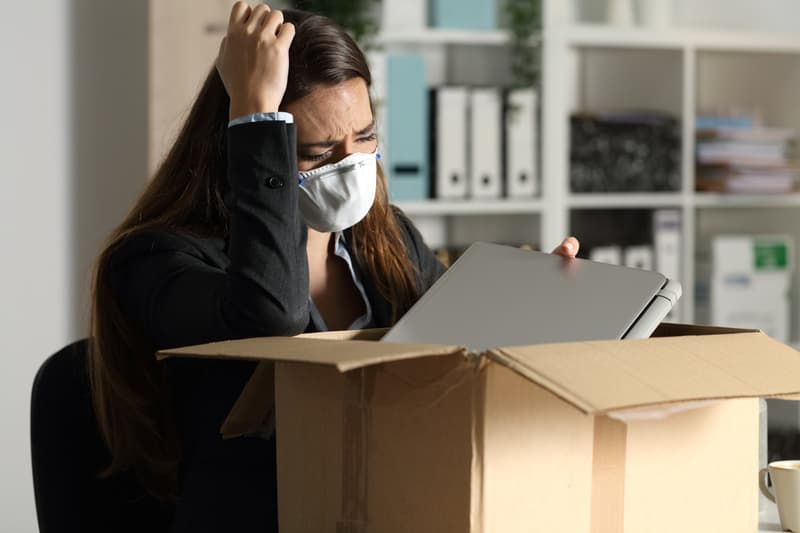Technical Officer, Readiness
Copenhagen
- Organization: WHO - World Health Organization
- Location: Copenhagen
- Grade: Mid level - P-4, International Professional - Internationally recruited position
-
Occupational Groups:
- Development Cooperation and Sustainable Development Goals
- Closing Date: 2023-11-30
OBJECTIVES OF THE PROGRAMME
The mission of the Division of WHO Health Emergencies (WHE) is to build the capacity of Member States to assess, prevent and manage health emergency risks, and lead and coordinate the international health response to contain all hazard emergencies, as described under the IHR (2005) and to provide effective relief and recovery to affected populations.
The WHE Division brings together and enhances WHO's operational, technical and normative capacities in health emergencies and risk analysis to address all health hazards across the risk management cycle in a predictable, capable, dependable, adaptable and accountable manner. The Programme is designed to operate within the broader humanitarian and emergency management architecture in support of people at risk of, or affected by, outbreaks and emergencies, consistent with ways that strengthen local and national capabilities.
Country Health Emergency Preparedness & IHR (CPI) Programme Area is responsible for monitoring and evaluation of countries’ preparedness for health and humanitarian emergencies, the planning and country capacity building for critical capacities and the Secretariat of the International Health Regulations (2005). CPI has an all-hazards approach and involves all three levels of the Organization.
Organizational Context
1) The work environment is highly dynamic at the moment and for the foreseeable future, with many changes in the global health emergency architecture following the lessons learned from the COVID-19 Pandemic. These include the development and adoption of a new Pandemic treaty, negotiations on targeted amendments to the IHR (2005), the proposals by the WHO DG on strengthening Health Emergency Preparedness, Response and Resilience and the introduction of Financial Intermediary Fund, with the World Bank and the WHO acting as two main players; and other global and regional processes to which the candidate must understand, nuance, and adapt their work to.
2) The role of the incumbentis to provide specialist and practical support to EURO Member States in the implementation of the national and sub-national preparedness and readiness through risk and vulnerability analysis, risk prioritization, all-hazard health sector emergency preparedness plan and contingency plan development and linking it with Pandemic Influenza plans and Public Health Emergency Operations Centre plans and policies and disaster risk reduction plans and strategies.
3) International Health Regulations (2005) – Third edition WHO guidance on preparing for national response to health emergencies and disasters.
WHO Strategic toolkit for assessing risks: a comprehensive toolkit for all-hazards health emergency risk assessment.
WHO Health emergency and disaster risk management framework
Sendai Framework for Disaster Risk Reduction 2015-2030
Public health emergency contingency planning at designated Point of Entry
Coordination of public health surveillance between PoE and the national public health surveillance system
Assessment of core capacity requirements at designated airports, ports, and ground crossings
Hospital safety index: guide for evaluators, 2nd ed.
Hospital readiness checklist for COVID-19 interim version February 24, 2020
Hospital emergency response checklist
4)The incumbent is expected to take decisions in the area assigned on their own, communicating to the Team leader, and to engage with confidence and professionalism with ministries of Health and other national authorities, partners organizations. Within the Organization, the incumbent is expected to engage with other divisions, particularly the Division of Country Health Policies and Systems (CPS), as well as WHO headquarters. The incumbent is expected to attend relevant meetings and support the development of global and regional tools and methods
DESCRIPTION OF DUTIES
Support Member States to build the capacity to assess, prevent and manage health emergency risks especially focusing health facilities and hospitals.
The candidate will independently support, organize, lead, or participate in, trainings and capacity building for national or sub-national preparedness and disaster risk reduction activities
Provide technical assistance and advice on the development and implementation of strategic and operational plans on all-hazard preparedness and readiness, at the regional and country level, in collaboration with other WHE programmes as well as other Divisions.
1.Provide technical assistance and advice on the development and implementation of national all- hazards preparedness and response plans at the regional and country level, in close collaboration with Country Offices and HQ.
2.Conduct risk and vulnerability assessments and develop hazard specific contingency plans for priority hazards in collaboration with other WHE programmes; engage in disaster risk reduction initiatives including urban preparedness.
3.Develop and update readiness checklists to evaluate readiness for priority hazards and define key actions to increase operational readiness as needed with hazard specific subject matter experts across WHO and international stakeholders/experts from technical organizations and other UN agencies
4.Develop and update training materials and implement capacity and capability building activities for Member States and WHO staff; plan and conduct simulation exercises to enhance their all-hazard preparedness and readiness in close collaboration with relevant RO divisions, Country Offices and HQ
5.Work closely with the Technical Officer, Preparedness, and contribute to all relevant preparedness and readiness activities. Support other WHE programme areas, as needed.
6.Work closely with national authorities and health partners to coordinate and implement public health readiness activities in line with the global and regional readiness and response plans; analyze existing coordination mechanisms, designing and recommending improvements.
7.Engage with UN DRR and other relevant partners and collaborate on readiness activities including urban preparedness, readiness, and resilience at the city/urban level.
8.Provide technical and operational support to other CPI/WHE/WHO and EMO/WHE under the IMST as needed.
9.Provide input to the formulation of policies, standards, guidelines, and tools on emergency management led by WHO, and facilitate and monitor their adaptation and implementation at the regional and country level.
10.Perform other related responsibilities, including replacing and/or backstopping
REQUIRED QUALIFICATIONS
Education
Essential: Masters level or higher university degree in health or social sciences, public health, emergency planning, health services management from recognised university
Desirable:Training in emergency management, training methodology development, project management..
Experience
Essential: At least 7 years of relevant experience in public health and emergency management at national and international levels. Experience of coordination and collaboration in preparedness and readiness activities (e.g. data collection, analysis, strategy planning) with external organizations in resource-limited countries.
Experience in hospital emergency preparedness and response activities.
Desirable: Experience in the development or roll out of guidance documents and training materials.
Experience of working in international organizations or United Nations and partner agencies.
Prior experience facilitating medium to large workshops
Skills
Knowledge
·Knowledge of emergency management, emergency preparedness, readiness and response plan development, training methodology development and project management.
·Knowledge of the changing health emergency landscape and governance and an understanding the opportunities and pitfalls to the programme
Skills
·The ability to independently organise and implement workshops in coordination with WHO Country Offices
·Ability to create a non-judgemental environment of openness and trust, particularly when discussing sensitive issues such as on challenges faced in the context of a workshop or interview.
·Ability to work as team player with excellent interpersonal skills.
·Ability to engage effectively to external partners including Ministries of Health, Donor institutions, Civil Society, and other stakeholders.
·Excellent written and oral communication skills to diverse audience within and outside the health sector, including to high level stakeholders.
·Skills with quantitative and qualitative analysis and the ability to proven ability to write peer-reviews articles summarizing findings
WHO Competencies
1.Teamwork
2.Producing Results
3.Communication
4.
5.
Use of Language Skills
Essential: Expert knowledge of English.
Desirable: Intermediate knowledge of Russian.
REMUNERATION
WHO salaries for staff in the Professional category are calculated in US dollars. The remuneration for the above position comprises an annual base salary starting at USD 77,326 (subject to mandatory deductions for pension contributions and health insurance, as applicable), a variable post adjustment, which reflects the cost of living in a particular duty station, and currently amounts to USD 5,032 per month for the duty station indicated above. Other benefits include 30 days of annual leave, allowances for dependent family members, home leave, and an education grant for dependent children.
ADDITIONAL INFORMATION
- This vacancy notice may be used to fill other similar positions at the same grade level
- Only candidates under serious consideration will be contacted.
- A written test and/or an asynchronous video assessment may be used as a form of screening.
- In the event that your candidature is retained for an interview, you will be required to provide, in advance, a scanned copy of the degree(s)/diploma(s)/certificate(s) required for this position. WHO only considers higher educational qualifications obtained from an institution accredited/recognized in the World Higher Education Database (WHED), a list updated by the International Association of Universities (IAU)/United Nations Educational, Scientific and Cultural Organization (UNESCO). The list can be accessed through the link: http://www.whed.net/. Some professional certificates may not appear in the WHED and will require individual review.
- According to article 101, paragraph 3, of the Charter of the United Nations, the paramount consideration in the employment of the staff is the necessity of securing the highest standards of efficiency, competence, and integrity. Due regard will be paid to the importance of recruiting the staff on as wide a geographical basis as possible.
- Any appointment/extension of appointment is subject to WHO Staff Regulations, Staff Rules and Manual.
- Staff members in other duty stations are encouraged to apply.
- The WHO is committed to creating a diverse and inclusive environment of mutual respect. The WHO recruits and employs staff regardless of disability status, sex, gender identity, sexual orientation, language, race, marital status, religious, cultural, ethnic and socio-economic backgrounds, or any other personal characteristics.
- The WHO is committed to achieving gender parity and geographical diversity in its staff. Women, persons with disabilities, and nationals of unrepresented and underrepresented Member States (https://www.who.int/careers/diversity-equity-and-inclusion) are strongly encouraged to apply.
- Persons with disabilities can request reasonable accommodations to enable participation in the recruitment process. Requests for reasonable accommodation should be sent through an email to:reasonableaccommodation@who.int
- An impeccable record for integrity and professional ethical standards is essential. WHO prides itself on a workforce that adheres to the highest ethical and professional standards and that is committed to put the WHO Values Charter into practice.
- WHO has zero tolerance towards sexual exploitation and abuse (SEA), sexual harassment and other types of abusive conduct (i.e., discrimination, abuse of authority and harassment). All members of the WHO workforce have a role to play in promoting a safe and respectful workplace and should report to WHO any actual or suspected cases of SEA, sexual harassment and other types of abusive conduct. To ensure that individuals with a substantiated history of SEA, sexual harassment or other types of abusive conduct are not hired by the Organization, WHO will conduct a background verification of final candidates.
- Mobility is a condition of international professional employment with WHO and an underlying premise of the international civil service. Candidates appointed to an international post with WHO are subject to mobility and may be assigned to any activity or duty station of the Organization throughout the world.
- WHO also offers wide range of benefits to staff, including parental leave and attractive flexible work arrangements to help promote a healthy work-life balance and to allow all staff members to express and develop their talents fully.
- The statutory retirement age for staff appointments is 65 years. For external applicants, only those who are expected to complete the term of appointment will normally be considered.
- Please note that WHO's contracts are conditional on members of the workforce confirming that they are vaccinated as required by WHO before undertaking a WHO assignment, except where a medical condition does not allow such vaccination, as certified by the WHO Staff Health and Wellbeing Services (SHW). The successful candidate will be asked to provide relevant evidence related to this condition. A copy of the updated vaccination card must be shared with WHO medical service in the medical clearance process. Please note that certain countries require proof of specific vaccinations for entry or exit. For example, official proof /certification of yellow fever vaccination is required to enter many countries. Country-specific vaccine recommendations can be found on the WHO international travel and Staff Health and Wellbeing website. For vaccination-related queries please directly contact SHW directly at shws@who.int.
- WHO has a smoke-free environment and does not recruit smokers or users of any form of tobacco.
- For information on WHO's operations please visit: http://www.who.int.
- For WHO General Service staff who do not meet the minimum educational qualifications, please see e-Manual III.4.1, para 220.
- In case the website does not display properly, please retry by: (i) checking that you have the latest version of the browser installed (Chrome, Edge or Firefox); (ii) clearing your browser history and opening the site in a new browser (not a new tab within the same browser); or (iii) retry accessing the website using Mozilla Firefox browser or using another device. Click this link for detailed guidance on completing job applications: Instructions for candidates

